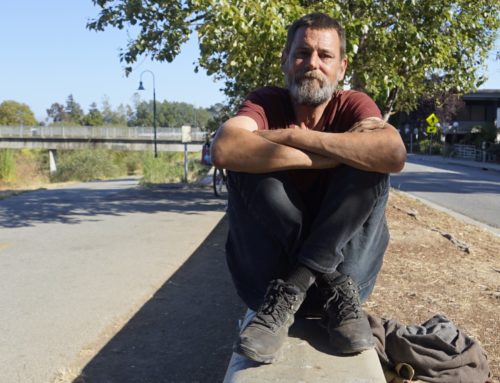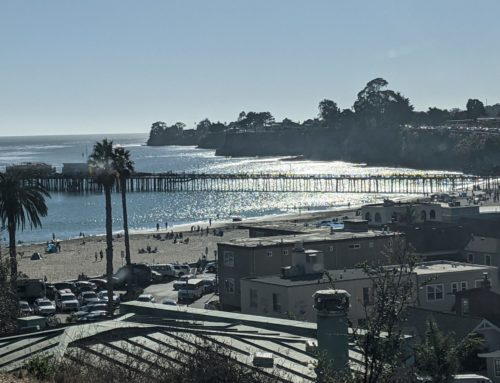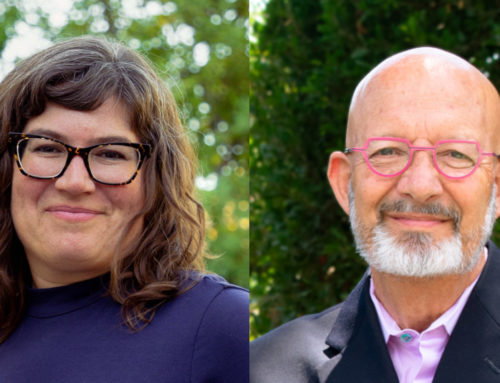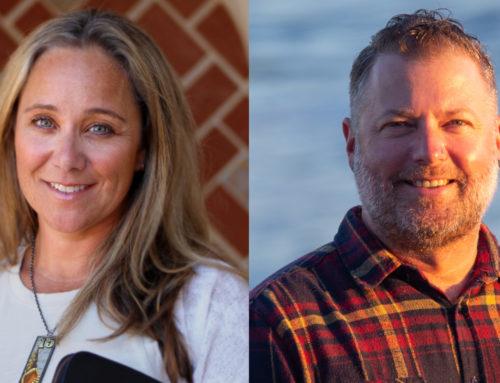Santa Cruz Local’s Jerimiah Oetting answers your questions about antibody testing: What is it? Is it available in Santa Cruz County? How reliable are the tests? And is Santa Cruz County pursuing antibody testing?
This is the fourth installment of “Santa Cruz Local Answers,” where Jerimiah tackles your coronavirus-related questions.
Submit your questions to santacruzlocal.org/coronavirus. Or email a question to [email protected].
Transcript below.
TRANSCRIPT
Santa Cruz Local offers its coronavirus-related work free as a public service. But journalism can be expensive — and deep, time-consuming, investigative journalism is the most expensive of all.
Santa Cruz Local depends on memberships from people like you to make sure vital information can be available to all. Can we count on your help?
KARA MEYBERG GUZMAN: I’m Kara Meyberg Guzman.
JERIMIAH OETTING: And I’m Jerimiah Oetting.
KMG: And this is Santa Cruz Local Answers.
We got a lot of questions from you over the past few weeks about antibody testing.
You wanted to know: Is it available in Santa Cruz County? How reliable are the tests? And what’s the county’s plan for pursuing antibody testing?
Jerimiah, you’ve been looking into this over the past two weeks. What have you found?
JO: Well, for someone who wants to know if the sickness they had in January or February was coronavirus, they could shell out $120 and get an antibody test. You can buy the test online and schedule a blood draw at one of several private labs throughout the county.
But you won’t know if the results are accurate. And even if they are, so little is known about what antibodies mean that you shouldn’t change your behavior.
Antibodies are kind of like fingerprints of the disease. They show the body has already had a disease and recovered. They don’t show a current infection, but they are evidence someone was sick in the past. For other coronaviruses, like the one that caused the SARS epidemic, having antibodies meant you had immunity to the virus.
But there is currently no data that shows the novel coronavirus confers immunity. It’s likely that some sort of immunity results after recovering from COVID-19, but we just don’t have that information yet. Even if it’s likely, we also don’t know for how long that immunity would last.
The scientists I interviewed for this story really cautioned people to not ignore social distancing guidelines based on a test result. Social distancing is the best way to prevent spreading the disease.
Because of all these limitations, the county is not pursuing antibody testing. The county is more interested in testing that can show if someone has an active infection.

Here’s Dr. Gail Newel. She’s the county health officer. We asked her some of your questions last week about antibody testing.
DR. GAIL NEWEL: We just don’t know how to interpret antibody tests yet. We don’t know what their results mean. And in addition, there’s no, or very little, FDA regulation of antibody testing happening at this time.
JO: Newel cautioned people to do their research before getting an antibody test. If you’re going to get an antibody test, at the very least make sure the company you’re getting the test from has a [emergency use authorization] permit, called an EUA. That’s the best the FDA can do right now in terms of regulation.
NEWEL: There are many, many scams going on out there of different kinds of testing. As you can imagine this is, with people being afraid, this is a prime opportunity for people to be taken advantage of. And when I have been asked about testing sites in the county, I’ve asked the sponsors of those sites, they’re usually for-profit companies. They’re always for-profit companies, that have been coming in. And I’ve asked that the sites investigate the FDA EUA status.
KMG: It sounds like there’s a ton of limitations to antibody testing. There’s false positives, there’s false negatives. And we don’t even really know yet what test results mean. Jerimiah, what is the point then? What’s the point of getting an antibody test?
JO: Basically, for an individual, there isn’t a huge point. You shouldn’t really change your behaviors based on the test result, and like you said, there’s not a great understanding of what immunity, if any, is conferred from having antibodies.
But on a community-wide scale, those limitations can kind of be reduced with statistics. And it can provide sort of a rough sketch of what the virus is doing and how it’s moving through our community, and how many people have been infected.
I spoke with Marm Kilpatrick about this. He is a UCSC professor who studies infectious diseases.
MARM KILPATRICK: And for example, New York, when they screened a bunch of different parts of New York, they could ask what fraction of people have been exposed in those places, and are we at the early stages of the epidemic when still most people are susceptible? Or have we moved on to the point where actually a substantial fraction of people are already been exposed? Or are we in this, you know, really far stage where in fact, say, half or more than half of the population has been exposed. And knowing that is quite useful because it tells you how likely it is that transmission is to increase if you relax all the social distancing measures that are in place.
And let me just say one other thing, which is that, even though tests aren’t perfect, we can correct the estimates for the true fraction of the population that’s been exposed in a population level, using simple statistical measures. So that’s not that hard to do. But those methods don’t give us any way to identify which are the false positives.
JO: No test is perfect. There’s always going to be some false positives and negatives. On a community-wide scale, that’s okay because scientists can correct for that.
KMG: Jerimiah, there’s work being done in this direction: a community study of antibodies up at UC Santa Cruz. Tell us a little bit about that.
JO: A few scientists that I spoke with from UCSC are working on a faster and more effective way to test antibodies. They’re hoping to test a truly random sample of the population of Santa Cruz. Volunteers will come in, they’ll donate a drop of blood, and the scientists will see if they have any antibodies. Because this is a community research study, individuals won’t get their results back. But the data will show how the virus is spreading in our community.
Here’s Rebecca DuBois. She’s one of the scientists leading the study.
REBECCA DUBOIS: No one has studied our community yet. I’m hearing, of course, tons of stories, and I think we all have, of people being sick in February and late January, and wondering, like, if that was it. And so, I think understanding how much of our community had it in the past would be valuable.
KMG: Jerimiah, what’s the timeline of this study?
JO: Rebecca DuBois told me that the paperwork is in order and they’re hoping they can start doing the study in early summer. She mentioned the end of June. And she said once they’re able to start taking community members’ blood samples and testing them it should take about a week before they have all their results.
KMG: And what are they going to do with the results? Like, do you have a sense of whether they’re going to be making policy decisions off that?
JO: DuBois said they aren’t currently talking to the county, and so there aren’t any plans right now it doesn’t sound like, for these results to impact any sort of policy.
But the data from this study will have usefulness beyond policy making. There’s still so much that’s not known about coronavirus. Once we know more about immunity, the individual antibody tests will probably be more useful. Especially for workers on the front lines. At hospitals, for instance, it might mean that people who have antibodies are the ones who work in the COVID wards with patients who are currently infected.
Having this community-wide data from UCSC will be helpful in just understanding more about the virus and how it’s moving through Santa Cruz County.
KMG: Thanks Jerimiah for your reporting. We want to hear your questions. If you have a question you want answered, submit it at santacruzlocal.org/coronavirus. Or, you can send us an email at [email protected]. Or, feel free to call us at 831-222-0460 and leave a voicemail.
I’m Kara Meyberg Guzman. Thanks for listening to Santa Cruz Local Answers.




